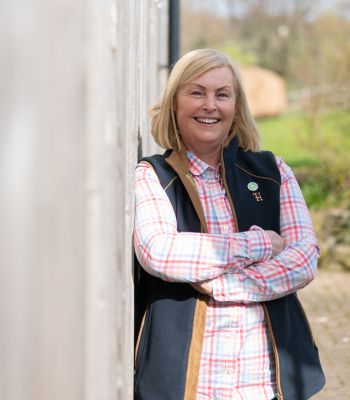Recovery and restructuring finance help Scottish farm business grow
1st August 2024
In the picturesque yet challenging rural landscapes of the Scottish Borders, agricultural businesses have to navigate a complex financial terrain, intensified by the agricultural transition, rising operational costs and an unpredictable political climate, said rural lender expert, UK Agricultural Finance.

UK Agricultural Finance underlined that recovery and restructuring finance play a “critical role” in offering a lifeline to farm businesses facing these multifaceted pressures.
A Scottish farm business has asked the financial solutions expert for help in building stable and growing rural enterprise.
A businessman and his wife returned to Scotland about 15 years ago due to his parents’ declining health.
He had previously lived in London for many years, pursuing a successful career in the marketing sector. Now, he manages the entire estate and its farming operations, with his parents unable to contribute due to illness.
The UK Agricultural Finance team said that this situation is not an uncommon one for many rural estates in the UK, with adult children often returning to the estate following non-agricultural careers in London or elsewhere.
Often, returning to the estate is a challenging mix of emotions as they have to decide how to manage the estate in a changing agricultural sector.
Returning to family estate
A businessman and his wife returned to Scotland about 15 years ago due to his parents’ declining health.
He had previously lived in London for many years, pursuing a successful career in the marketing sector. Now, he manages the entire estate and its farming operations, with his parents unable to contribute due to illness.
The UK Agricultural Finance team said that this situation is not uncommon one for many rural estates in the UK, with adult children often returning to the estate following non-agricultural careers in London or elsewhere.
Often, returning to the estate is a challenging mix of emotions as they have to decide how to manage the estate in a changing agricultural sector.
Understanding the estate
The estate is a mixed farming enterprise, with additional income from residential properties on the estate.
The main residence dates back to the late 1700s and has been in the family since its construction.
As such, there was a lot of pressure on the owners to protect the history of the estate while also finding new income streams and management processes to ensure its viability for the next generation.
The farming activities on the estate include nearly 500 acres of arable land used for cereal production, some of which is retained for animal feed, while the rest is sold mostly to England.
There are also around 150 head of cattle and nearly 2000 sheep that are both used for meat production.
Using cereals grown on the estate for animal feed has helped to reduce the costs of meat production while also protecting the estate from cost fluctuations such as those caused by the war in Ukraine, which has impacted many livestock farmers.
Diversification on the estate
The estate’s diversification strategy includes a profitable glamping and camping area, contributing significantly to its annual revenue.
Plans are in motion to further develop this sector and to adapt some residential properties and unused agricultural buildings into holiday lets, enhancing the estate’s hospitality offerings and leveraging its picturesque setting for additional income streams.
One of the most successful estate diversification projects came from the man’s love of Scottish products and how much he had missed these products when living in London.
Initially a café, then a shop adapted to market changes by transitioning into a retail outlet, which focused on Scottish made gifts and products.
This pivot not only differentiated it from larger, mainstream competitors but also proved highly profitable, showcasing the potential of niche market strategies in rural economies.
This move underscores the importance of agility and local focus in the diversification efforts of agricultural estates.

Why did the estate need restructuring finance?
There have also been some unsuccessful diversification projects, including a brewery that became not only unprofitable but also extremely time-consuming, which caused the businessman to have less time for more successful projects such as the shop.
UK Agricultural Finance said that following a strong review of the business strategy for the estate as a whole and the individual diversification projects, the borrower realised the need to close the unsuccessful diversification projects and focus on the more profitable enterprises.
In this challenging scenario, the man faced the daunting task of managing a diverse debt portfolio spread across four businesses, comprising over 30 different financial commitments.
This complexity underscored the urgent need for strategic financial consolidation to streamline operations and ensure sustainability.
The situation highlighted the critical role of recovery and restructuring finance in providing a structured approach to debt management, allowing the borrower to focus on future growth and stability, the financial expert said.
How will the recovery and restructuring finance support this estate?

The businessman has already started taking steps to improve the stability and sustainability of the estate businesses.
He has significantly upgraded their business management approach by working with experienced accountants and implementing cutting-edge management systems.
This strategic overhaul aims for precise control and analysis of each business unit, enhancing decision-making on inventory and operational efficiency.
Such advancements facilitate swift responses to market dynamics, allowing for the rapid adjustment or closure of underperforming shops by analysing their individual financial health, the expert explained.
The borrower will use UK Agricultural Finance loan to consolidate the existing debt but also invest in additional stock for the successful retail business.
He will capitalise on new data management systems for precise stock control and clear restocking decisions. This targeted approach aims to optimise product availability, aligning supply with demand across different locations.
By ensuring the right products are stocked at the right time, the businessman anticipates improved cash flow and profitability, showcasing the strategic use of financial resources to enhance business operations.
What comes after restructuring?
The borrower’s forward-looking strategy involves expanding the successful gift business online, targeting the significant Scottish expatriate community initially in London, then in the USA, and eventually in countries with high numbers of Scottish expats.
UK Agricultural Finance added that this strategic move into e-commerce is designed to tap into a niche market, leveraging the deep cultural connections and demand for Scottish products abroad, which is part of a broader vision for diversifying and enhancing business operations through informed financial planning and market research.
Read more farm business news.
